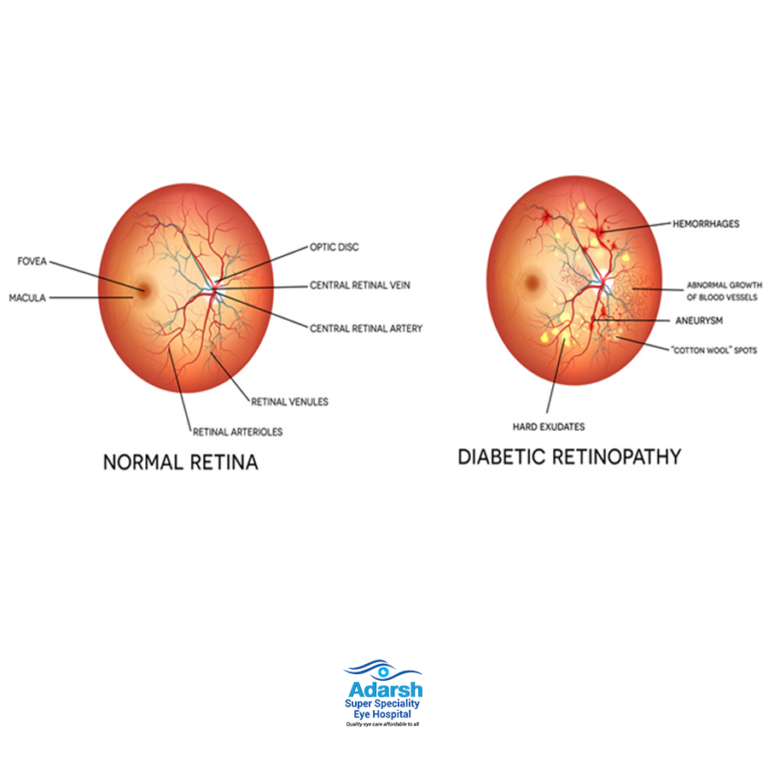Diabetic Retinopathy
Diabetic Retinopathy is one of the leading cause of blindness in adults. It is caused by changes in the blood vessels of the retina. In some people with Diabetic Retinopathy, blood vessels may swell and leak fluid. In some people, abnormal new blood vessels grow on the surface of the retina.
The retina is like the film of the camera which sends the image to the brain for processing. A damaged retina can lead to significant visual disturbances many of which may become permanent if not treated in time. The retinal diseases are some of the most common causes of a permanent loss of vision in many patients, if not treated on time.
All people with diabetes both type 1 and type 2 are at risk. That’s why everyone with diabetes should get a comprehensive dilated eye exam at least once a year. The longer someone has diabetes, the more likely he or she will get Diabetic Retinopathy.
Retina Surgery at Adarsh super speciality eye hospital
Visit our retina department , where expert works round the clock to ensure the vision of you and your loved ones is protected well. Infants and adults with different types of retina problems are examined here and treated as per the condition. Our hospital is equipped with world-class infrastructure and best grade machines to diagnose and treat all kinds of eye conditions.
What are the stages of Diabetic Retinopathy?
Diabetic Retinopathy has four stages:
- Mild Nonproliferative Retinopathy
- Moderate Nonproliferative Retinopathy
- Severe Nonproliferative Retinopathy
- Proliferative Retinopathy
Solutions and Treatment for Retinal Diseases
During the initial stages of various retinal diseases, generally, no symptoms are seen apart from the change or blurring in vision. During the later stages of the disorders, vision losses start to occur which may get worse if not treated properly.
In case, if one feels that there is a problem in the eye, they should immediately consult an eye specialist for further examination. If it is a retinal disease, receiving immediate treatment will increase the chances of regaining or retaining your vision, and limit further loss. During the regular eye checkups or consulting with our professionals, we identify various problems of the eye and suggest solutions accordingly. During the initial stages of the retinal difficulties, generally, some precautions and a set of essential medicines and eye drops are recommended for the treatment.
If the diseases are at advanced stages or they are not being cured with the primary treatment, surgery is then recommended after examining the eye condition and understanding the patient’s problems. This is the time when a highly experienced surgeon would step in and identify what type of surgery is needed and what will be the recovery time.

